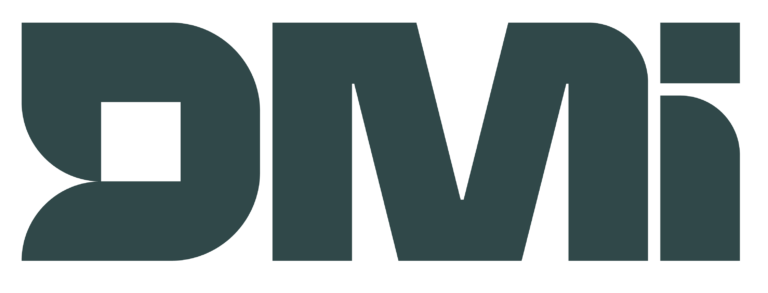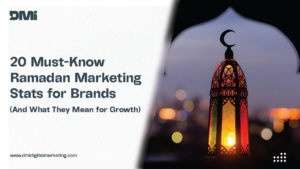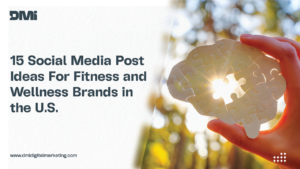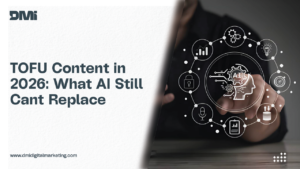Jump to Section
ToggleImagine having an edge that helps you outrank competitors and pull in more traffic effortlessly. Sounds like magic? It’s not — it’s AI SEO.
In 2026, artificial intelligence will continue to shape how websites climb search rankings and how business reach customers. But what does that actually mean for you? Let’s break down how AI SEO differs from traditional SEO and what it can unlock for your online presence.
What is AI SEO?
AI SEO, which stands for AI search engine optimization, is the practice of making your content visible and valuable in AI search results — such as Google AI Overviews, ChatGPT, and similar platforms — by employing AI tools and tactics.
While we define AI SEO in this way, many other platforms define it as simply using an ‘AI tool for SEO’, which can make it narrow.
For this reason, we would rather say that AI SEO can be further explained as the use of AI tools to improve website ranking and visibility in search results.
Therefore, the two main concepts or components to take from the meaning of AI SEO is:
- Using AI tools to enhance SEO tasks.
- Optimizing content for new AI-powered search engines.
To make your content rank on AI search engines, you need to write valuable, well-edited content that is easy to scan for information without being overly wordy or spammy.
Read More: 6 Types of Content Most Likely to Appear in AI Search
Note: It remains a topic of debate whether to use AI tools to produce content or not. But it depends on you. While you may use output from AI tools, they need to be heavily modified by a skilled SEO writer or editor to avoid facing search engine penalties and ultimately, to provide authentic value for searchers online.
What is Traditional SEO?
Traditional SEO, often referred to as classical SEO by Google, involves using keywords to improve a website’s or content’s ranking on search engine result pages (SERPs) and gain visibility, ultimately leading to a high click-through rate.
Using Traditional SEO involves optimizing for:
- On-page SEO: Including title tags, meta descriptions, keyword usage, and internal linking.
- Off-page SEO: Building credibility and authority outside your own website. This includes building backlinks from reputable sites.
- Technical SEO: Improving the site for a better user experience.
- Local SEO: Optimizing content or websites with local keywords so that you can appear for local searches.
What is the Difference Between AI SEO and Traditional SEO?
In 2025, search history is evolving gradually in response to AI-driven SEO trends. We will explore the core differences between these two: AI SEO and Traditional SEO.
- Goal: The primary objective of optimizing for traditional SEO is to rank high on search engine results pages, thereby increasing website visibility and improving its online presence. In contrast, the aim of optimizing for AI SEO is to rank on AI-powered search engines, such as Google AI Overview, as well as AI platforms like Perplexity and ChatGPT.
- Concept: Traditional SEO relies on manual keywords, such as searching for “Restaurants in Ontario,” because search engines like Google present answers based on the keywords users type into their platform. In contrast, AI SEO leverages advanced AI algorithms to analyze user queries and generate content that is both engaging and user-friendly. Why is this? This is possible because users now type questions into search engines like Google, Gemini, and Bard, as if they are asking questions to another person.
- Content: Traditional SEO focuses on human-developed content, incorporating emotions, brand voice, and in-depth storytelling, while AI SEO in 2025 involves optimizing content to be understandable and relevant to AI systems. Making it easy for AI to generate summaries from your articles so they can be displayed on AI-powered search engines.
- Understanding user intent: Traditional SEO relies on keyword targeting and sometimes produces content that does not fully capture the intent behind the query. In contrast, AI-powered search engines in 2025 utilize a system called Natural Language Processing (NLP) to comprehend the purpose behind each user’s query and generate relevant content tailored to the user.
- Cost and Resources: Traditional SEO involves hiring an SEO expert or team for research, content creation, and link-building, whereas AI SEO will require experts with the knowledge of how AI SEO works.
Why Using Both AI SEO and Traditional SEO (Hybrid) is the Winning Formula in 2026?
Even with the evolution of search in the AI SEO era, it remains beneficial to incorporate both traditional SEO and AI SEO strategies into your content. Here is why:
- If your content didn’t rank on AI-powered search engines based on the competition, it will rank on Search engine results pages (SERPs).
- Leveraging AI SEO provides data-driven insights and analysis, and helps you identify trends, patterns, and opportunities.
- Traditional SEO brings a human touch, enabling the creation of creative, high-quality content that resonates with audiences.
- By combining AI SEO strategies with traditional SEO strategies, you can create more accurate and practical SEO approaches.
- Traditional SEO considers the nuances of language, context, and user intent, which AI SEO may not fully capture.
What are the Strategies to Adapt in 2026?
- Utilize AI-powered tools for keyword research, content optimization, and technical SEO: AI tools can be used for various tasks, including keyword research, content optimization, and technical SEO, utilizing advanced algorithms to automate tasks. Within a few minutes, AI can analyze the volume of searches a keyword has, write SEO-friendly content, and also make suggestions for on-page optimization. Provide AI with the right prompt, and it will generate lists of keywords to use in your content. AI-powered tools like ChatGPT and Jasper AI are suitable for keyword research, but not without human expertise to separate the wheat from the shaft.
- Prioritize user experience and create high-quality content: you are writing for your audience, not for yourself. Make sure your content is properly edited and formatted for easy readability, and publish valuable articles that users can gain a wealth of knowledge from.
- Edit for easy readability and scanability for AI: AI doesn’t take much time to analyze a website. Your articles must be edited appropriately, using proper headings from H1 to H4 in order of importance, and also include spacing for a neat appearance, allowing AI to analyze the work effectively.
- Optimize for long-tail keywords and conversational queries: Search history is evolving gradually, and people now search as if they are talking to a real person. To rank in this era, you need to optimize for conversational queries, use question-like headings, and give answers directly.
- Track AI visibility: As you influence how ChatGPT, Gemini, Perplexity AI cite your brands with the aforementioned strategies, don’t forget the golden rule for marketing success: tracking. It’s the best way to discover your strengths and weaknesses in AI SEO. Start by measuring your AI visibility with Wellows. This AI SEO tool offers a comprehensive report featuring a LLM score, Sentiment Analysis, Citation Rank and Citation Score. Other tools you can try include Semrush’s AI Visibility Toolkit and UbberSuggest’s AI Visibility Tool.
FAQs
What’s the difference between AI SEO and traditional SEO?
AI SEO involves the use of AI tools to rank on AI-powered search engines, whereas traditional SEO utilizes keywords to rank on search engine result pages.
Can I really use both AI SEO and traditional SEO?
Absolutely! In fact, that’s the secret to SEO success. By combining both, you’ll get the best of both worlds.
Will using AI SEO and traditional SEO really make a difference?
Definitely! By leveraging the strengths of both, you’ll drive more traffic, boost rankings, and get ahead of the competition.
Is AI SEO suitable for small businesses?
Absolutely! AI SEO can be tailored to fit businesses of all sizes. It can help small businesses compete with larger corporations by providing valuable insights and optimization strategies.
How often should I update my AI SEO strategy?
Regularly review and update your AI SEO strategy to stay ahead of the competition and adapt to changing search engine algorithms and trends.
Bottom Line
Technology continues to advance daily, and we must adapt to stay ahead of the curve. AI SEO is becoming increasingly prominent, so it’s vital for writers to refine their strategies to appear as credible sources on these AI-powered platforms.
Author
-

Yusuf Mutiat Temitope is a result-driven content writer with years of experience in conversion-driven content writing. Mutiat writes on digital marketing to drive business growth, provide insights on trending topics for the audience, and increase customer engagement.
View all posts SEO Content Writer






